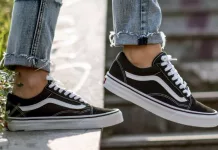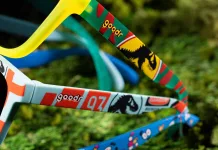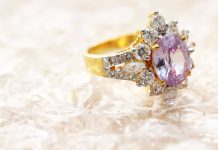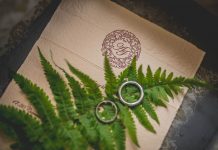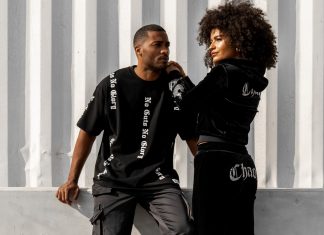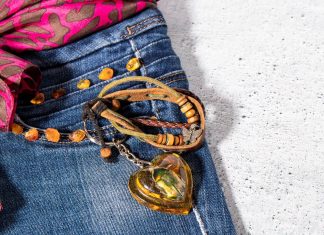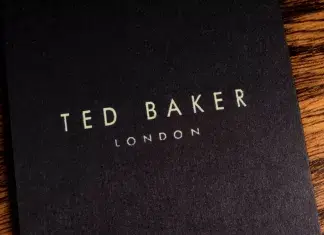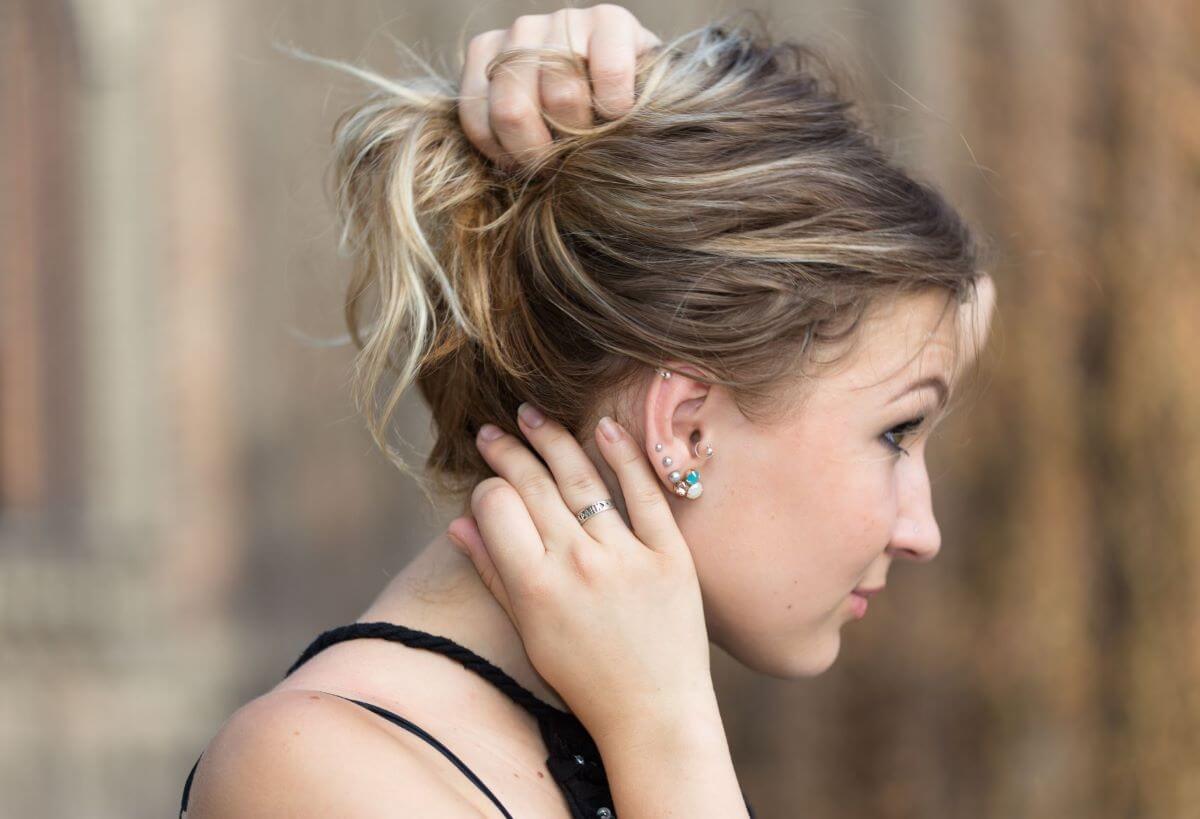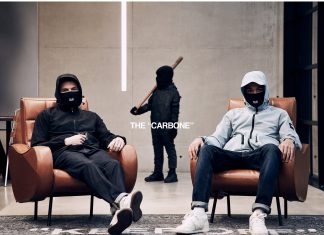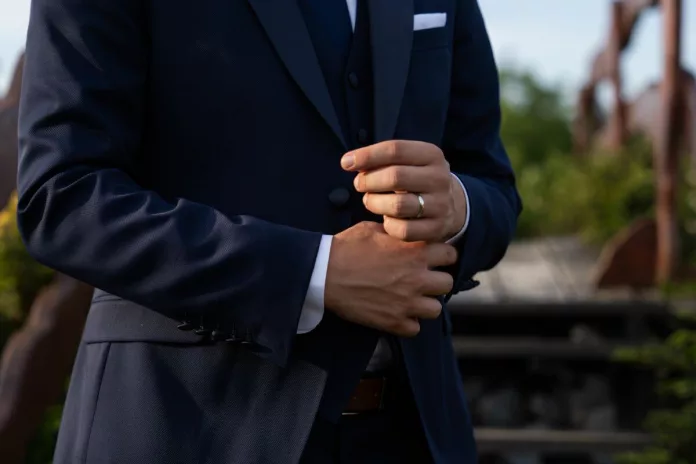
First Published: 27th September 2023, written by Olivia Doonan | Last Updated on 28th September 2023 | Reviewed and Edited by Chloe Safilo
Most of us know nuptial rings as symbols of commitment and an indicator that someone is already married. When it comes to the choice of a wedding band, the popular choice of metal for wedding bands is gold. It comes as no surprise since historically they are meant to signify the marital exchange of values and property.
Fast forward to today, the rings can take on multiple meanings, and the design options have become vast. On top of that, grooms (not just the brides!) are increasingly seeking alternative metals that offer distinctive styles and reflect their individuality. Truly showing that men are free to express themselves even through their wedding bands.
Grooms can find the perfect band by considering their lifestyle, personal style, and budget. Trying on various metals and styles, researching reputable jewellers, and seeking recommendations from trusted sources ensure a well-informed choice. In this blog, we’ll explore a selection of unique metals used across the UK.
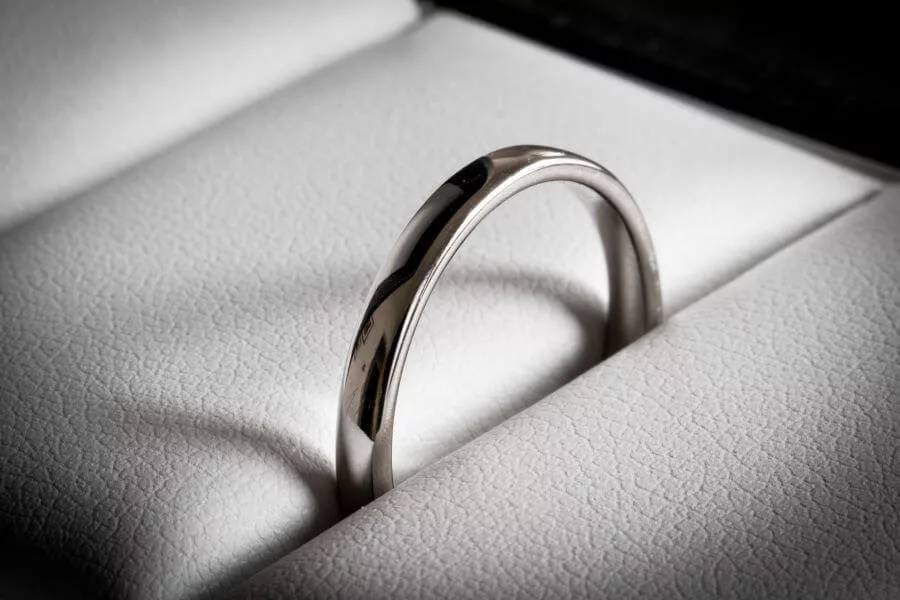
Platinum: Light & Luxurious
Coming from the Latin word “platina,” which means little silver, platinum is a dense, rare metal that exudes an air of luxury. It is a highly sought-after choice for wedding bands due to its natural white sheen and exceptional durability. It’s often identified as a symbol of enduring love, and its rarity makes it a unique choice for those who appreciate the finer things in life.
Titanium: Durable & Stylish
British grooms living an active lifestyle prefer titanium, popularising the said metal. It is lightweight yet firm, making a mark for its exceptional durability and resistance to scratches and wear. It has a natural greyish hue that provides a modern, industrial look, appealing to those seeking a contemporary edge to their wedding band.
Palladium: Unique & Noble
A close cousin to platinum and also getting more attention in the UK is palladium. It is a rare and lustrous metal boasting a similar, naturally white colour. It is known for being hypoallergenic, making it an excellent choice for those with sensitive skin. Palladium rings are both elegant and durable, reflecting the exceptional qualities of the metal itself.
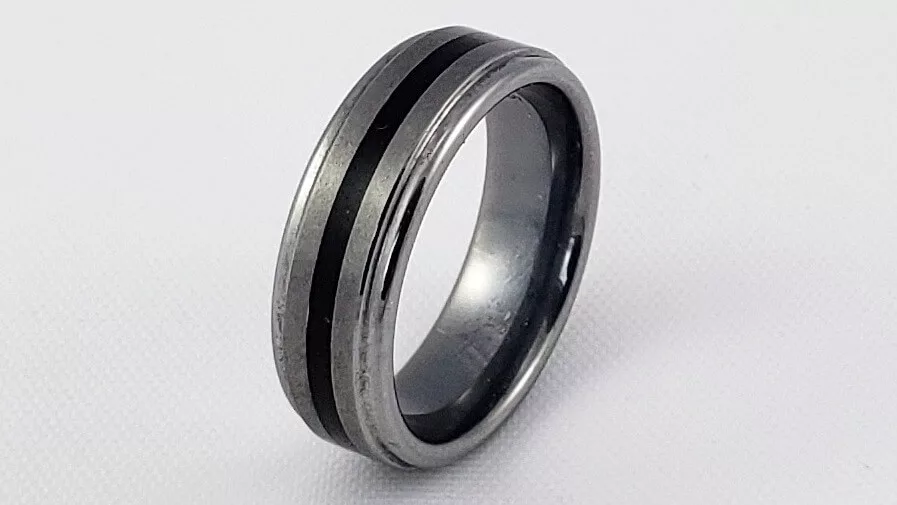
Tungsten: Stable & Resilient
One of the hardest metals available, tungsten is the epitome of strength and resilience. It is nearly impossible to scratch or damage. Mens wedding bands in tungsten are well-suited for British grooms seeking a bold and rugged aesthetic. It has a dark, gunmetal grey appearance, providing a sleek, masculine look.
Cobalt: Contemporary & Tarnish-Proof
Cobalt is a newer player in alternative metals, but its popularity is rising. Distinguished for its brilliant white colour and remarkable strength, cobalt rings are stylish and modern. They are also highly resistant to scratching and tarnishing, making them an excellent choice for those with active lifestyles.
Sterling Silver: Timeless & Elegant
It might not be a common choice, but sterling silver offers a classic, timeless appeal. Its affordability makes it attractive for couples looking for quality without the hefty price tag. Many people in the UK pick sterling silver for their underrated elegance and versatility.
Rose Gold: Warm & Classic
Rose gold has made a significant comeback in recent years, bringing a touch of vintage elegance to wedding bands. The warm, rosy hue is achieved by blending copper with gold, creating a unique and romantic look. Grooms who fancy a blend of tradition and contemporary style often gravitate towards rose gold nuptial rings.
Wood Inlays: Crafty & Natural
For grooms who seek a unique blend of nature and craftsmanship, wood inlays offer a distinctive option. These bands combine the strength of metals like titanium or tungsten with the warmth and character of natural wood. Popular choices include rich walnut, exotic koa, and classic oak. Wood inlays evoke a sense of rustic charm and are a nod to the beauty of the outdoors.
Black Zirconium: Sleek & Striking
Black zirconium offers a striking alternative for a timeless, bold, and distinctive look. It undergoes a unique heat treatment, resulting in a sleek, dark finish. Highly durable and lightweight, black zirconium rings are known to resist scratches and fading. Its dark hue provides a modern, edgy aesthetic that appeals to those with a penchant for contemporary style. Plus, a black wedding band is one of the most unique options out there.
Conclusion
In the UK, grooms embrace a diverse range of metals for their wedding bands, moving beyond the traditional gold options. The choices extend far beyond conventional gold. Each unique metal option and design reflects the diversity in taste and individuality.
Whether drawn to the opulence of platinum, the ruggedness of tungsten, or the natural charm of wood inlays, the modern groom has an array of choices to ensure his wedding band truly reflects his style and personality. In this evolving landscape of wedding band options, grooms can embrace a ring that symbolises their commitment and celebrates their distinct characters.
Which metal is the more durable?
They have been plenty of studies into metal density and durability. When it comes to durability, the most commonly recommended metal for wedding rings is platinum as it’s a dense and strong metal that is highly resistant to wear and tear. It is also hypoallergenic and does not tarnish over time.
Another durable option is titanium, which is extremely strong and lightweight, but not as dense. It is resistant to scratches and corrosion but can be less resistant to dents compared to platinum.
At one point Palladium was a cheaper alternative, but the increase in price is not worth the quality sacrifice.
| Metal or Alloy | Density – ρ – (kg/m3) | GBP/OZ |
| Platinum | 21400.00 | £743.84 |
| Tungsten | 19600.00 | TBC |
| Gold | 19320.00 | £1,565.50 |
| Palladium | 12160.00 | £995.89 |
| Silver | 10490.00 | £18.89 |
| Cobalt | 8746.00 | TBC |
| Steel | 7850.00 | TBC |
| Zirconium | 6570.00 | TBC |
| Titanium | 4500.00 | TBC |







